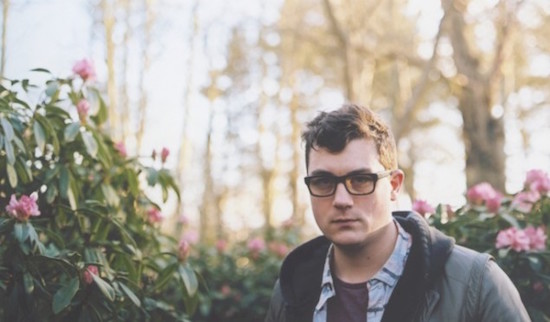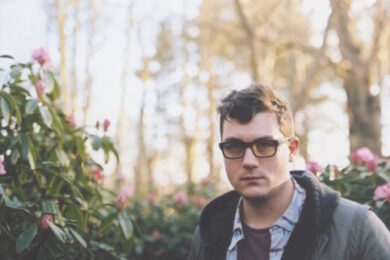Semibreve Festival returns to Braga in Portugal for its fifth year later this week kicking off on Friday (October 30) and running through until Sunday (November 1) with a line-up taking in appearances from Roedelius, Dopplereffekt, Vessel, Klara Lewis, Tim Hecker, Peder Mannerfelt, Powell and many more. Also appearing over the course of the weekend is Luke Abbott who will play a live set. Ahead of his appearance at the festival, we caught up with Luke to talk about his recent projects and what he has in store for Semibreve attendees.
You recently teamed up with Portico Quartet’s Jack Wyllie. What made you put your solo work aside for a while to pursue that collaborative project?
I like to try new things, and I’m always looking for ways that I can develop my skills. Working with other musicians and concentrating on improvisation has been one of the ways I can test and develop my performance and composition strategies. Currently, the way that the majority music is produced and performed is very safe and unadventurous, there’s not enough risk and there’s not enough freedom. I just don’t want to be in that comfort zone.
A lot of your musical background lies in electroacoustic music so what drew you to that originally?
When I was university age I was an art student, I was playing in bands and I was really into weird noises. I also got interested in the philosophy of music, what it is, how we understand and define music and how we experience it in the real world. I went on to study electroacoustic music at postgraduate level just as a way of exploring those ideas and discovering more about the technology involved in making sound.
How do you find connecting that background with producing music that might be considered more suited to other influences such as techno?
I think I used to see quite clear boundaries between different areas of music, and when I was getting into techno it was because I was looking for some rules I could play around with. I’ve moved on from that way of thinking now. I’ve stopped being interested in how one type of music is differentiated from another and I’ve started thinking more about how I operate as a musician. I’ve been touring on and off for over eight years now and in that time I’ve learned a lot about myself and what I find compelling about music. I never sit down to work on music knowing what kind of music I’m trying to create.
You’ve spoken before about how central to your work improvisation is. Do you think music should be as improvisational as possible when it comes to actually laying down and recording ideas?
I wouldn’t want to comment on how other people should make their music, that’s up to them, but, personally, improvisation is central to what I do. It’s just how I think music should be. I can remember when I was really young seeing musicians play and assuming that they were making it all up on the spot. I thought that’s what music was, an outpouring of ideas in a moment, and some music really is like that. That’s the thing I’m most interested in.
It has been some time since you released Wysing Forest so what have you been up to in the meantime and what should we expect next?
Since Wysing Forest I’ve started a record label (Buffalo Temple), released the soundtrack I did for the film The Goob, and I’ve also just released the collaboration with Jack. I’ve recorded another record for my label too. It’s an attempt at some kind of improvised spiritual jazz record. I recorded it with Laurence Pike who plays drums in PVT, and Jack’s also playing on half the record. I’m not sure when that’ll be out, but probably the beginning of next year. This year I also did a project inspired by Terry Riley. A recording of that should be released at the start of next year too I think. I’ve also been working with Gold Panda, doing mixing and production work on his new album. Aside from all that, I’ve been working on new solo stuff. I don’t want to tempt fate, but I think I might have started to make my third album. It’ll probably go wrong a few times before it’s done though.
Are there any other acts playing this year’s Semibreve Festival that you have been particularly drawn to?
Roedelius is playing; he’s a personal hero of mine. The Cluster records and a lot of his solo stuff have had a big influence on me.
Semibreve also bills itself as an event tuned into the digital arts as well as alternative music, so do you find playing festivals that marry these two forms of creativity more of a rewarding experience for people to experience your music?
I think it’s always healthy when festivals try to include art and music together. There’s so much grey area between different creative practices, it’s very important to try and explore the conceptual and aesthetic links between different disciplines, that’s where the future is.
What should attendees expect from your performance at Semibreve?
At the moment I’m playing a mixture of old and new stuff. There’s a few new things I’m working on that I’m playing live already, and a few old tracks that have somehow managed to survive into my current set.
Luke Abbott plays Semibreve Festival this Friday (October 30). The festival runs from October 30 – November 1. Click here for tickets and more information. Find the full timetable for the festival below
October 30
21:30 – Roedelius e convidados (Theatro Circo – Main Room)
22:40 – Dopplereffekt (Theatro Circo – Main Room)
23:59 – André Gonçalves (Theatro Circo – Small auditorium)
00:30 – Heatsick (GNRation – Blackbox)
01:45 Luke Abbott (GNRation – Blackbox)
October 31
15:30 – The Wire Q&A with Roedelius (Casa Rolão)
17:30 – Die Von Brau (Casa Rolão)
21:30 – Vessel + Pedro Maia (Theatro Circo – Main Room)
22:50 – Tim Hecker (Theatro Circo – Main Room)
23:59 – Klara Lewis (Theatro Circo – Small Auditorium)
00:30 – Peder Mannerfelt (GNRation – Blackbox)
01:45 – Powell (GNRation – Blackbox)
November 1
15:30 – The Wire Q&A with Heatsick (Casa Rolão)
17:30 – Oren Ambarchi (Main Room)
18:40 – Takami Nakamoto + Sebastien Benoits (Main Room)



